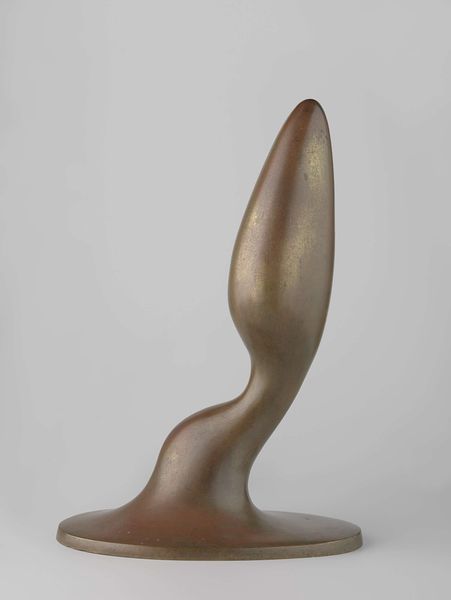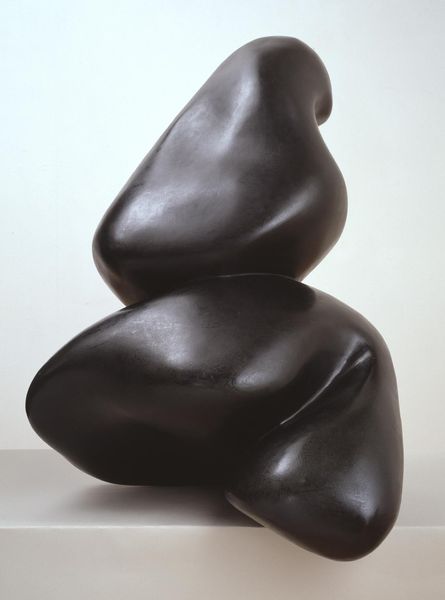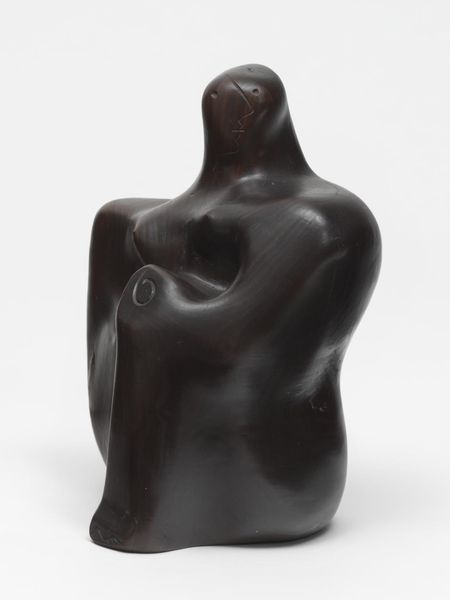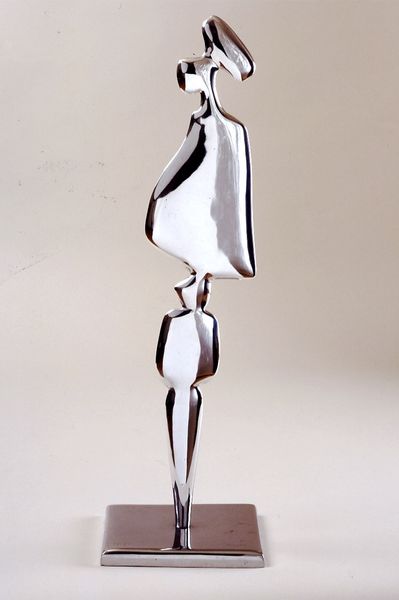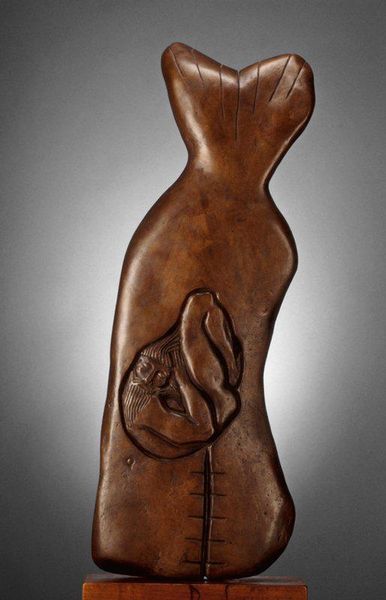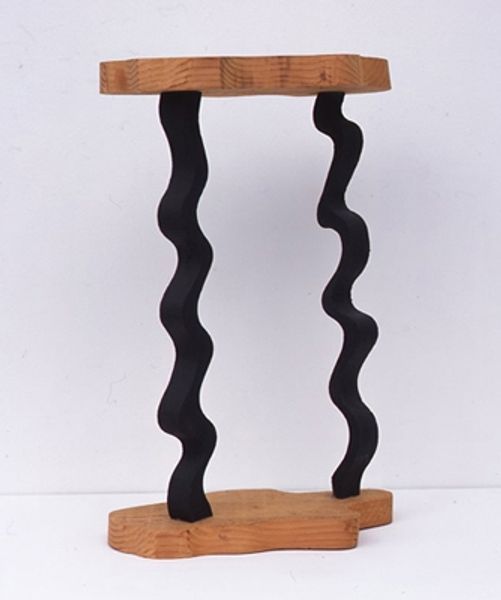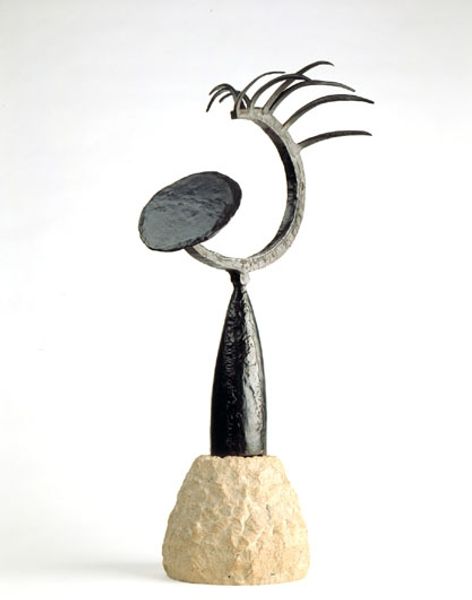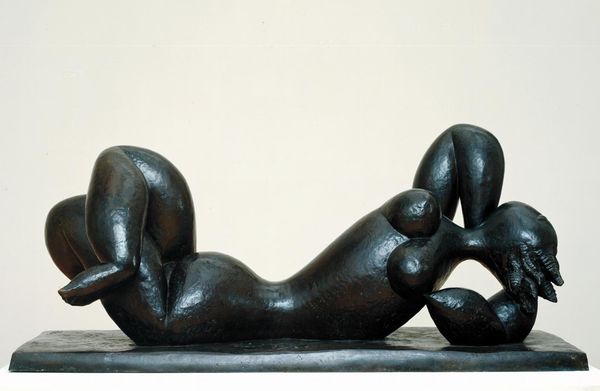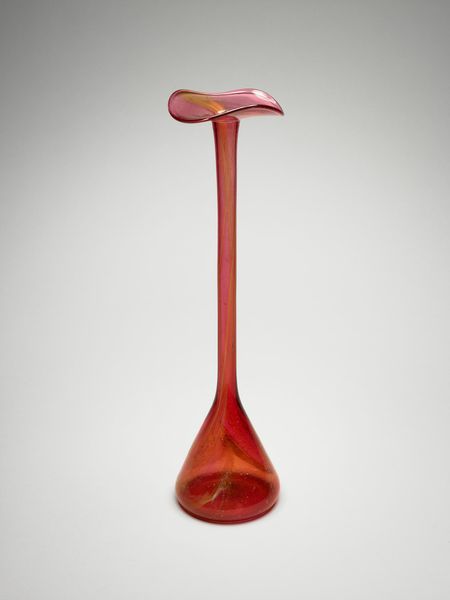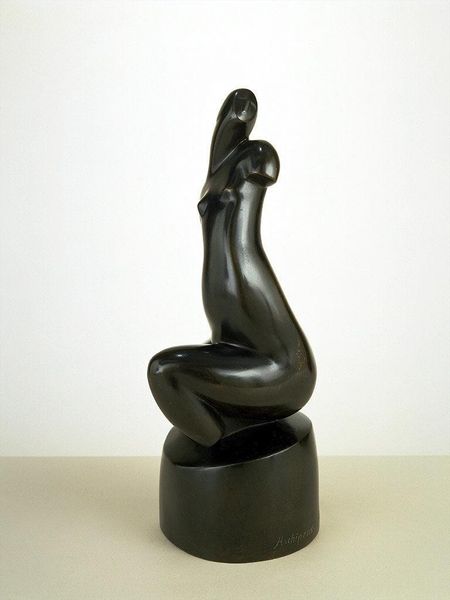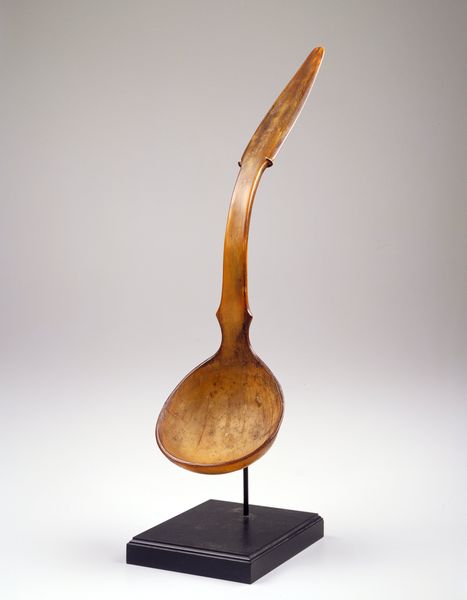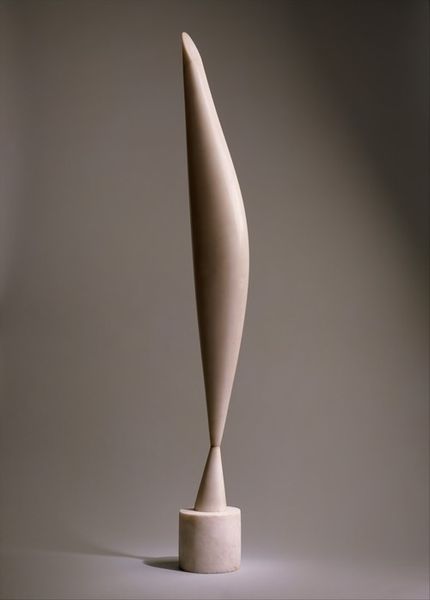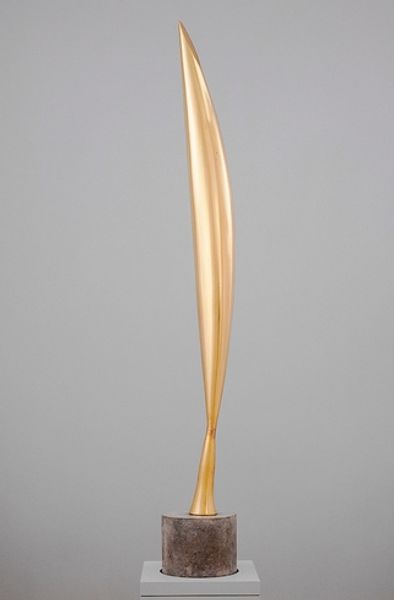
Dimensions: object: 622 x 178 mm
Copyright: © The estate of F.E. McWilliam | CC-BY-NC-ND 4.0 DEED, Photo: Tate
Editor: Here we have F.E. McWilliam's 'Profile,' a striking wooden sculpture from an unknown date. It's so smooth and abstract, it almost feels like a stylized human form. What do you see in this piece? Curator: It evokes for me the discourse around the objectification of women within the surrealist movement. Consider its smooth surfaces, biomorphic forms, and the almost fetishistic treatment of the wood. Do you see how it might represent a deconstructed female figure? Editor: I hadn't thought of it that way. So the abstraction could be a commentary on how women were portrayed? Curator: Precisely. McWilliam, knowingly or unknowingly, taps into a broader critique of power and representation, inviting us to question the male gaze inherent in much of art history. It offers a lens to examine intersectional ideas on identity. Editor: I see, it's much more layered than I initially thought. Curator: Exactly, and these discussions are important when understanding art.
Comments
Join the conversation
Join millions of artists and users on Artera today and experience the ultimate creative platform.
tate 10 months ago
⋮
During 1939−40, McWilliam made a series of carvings in wood and stone which he entitled The Complete Fragment. ‘These carvings were mostly part or parts of the head, greatly magnified and complete in themselves’, he later explained. ‘They concern the play of solid and void, the solid element being the sculpture itself while the “missing” part inhabits the space around the sculpture’. Carved over a period of six months from a single piece of lignum vitae, Profile was the last work he completed before joining the RAF in 1940. Gallery label, July 2013
